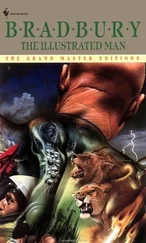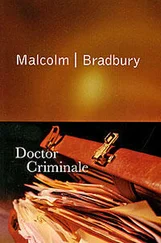Malcolm Bradbury - The History Man
Здесь есть возможность читать онлайн «Malcolm Bradbury - The History Man» весь текст электронной книги совершенно бесплатно (целиком полную версию без сокращений). В некоторых случаях можно слушать аудио, скачать через торрент в формате fb2 и присутствует краткое содержание. Жанр: Современная проза, на английском языке. Описание произведения, (предисловие) а так же отзывы посетителей доступны на портале библиотеки ЛибКат.
- Название:The History Man
- Автор:
- Жанр:
- Год:неизвестен
- ISBN:нет данных
- Рейтинг книги:3 / 5. Голосов: 1
-
Избранное:Добавить в избранное
- Отзывы:
-
Ваша оценка:
- 60
- 1
- 2
- 3
- 4
- 5
The History Man: краткое содержание, описание и аннотация
Предлагаем к чтению аннотацию, описание, краткое содержание или предисловие (зависит от того, что написал сам автор книги «The History Man»). Если вы не нашли необходимую информацию о книге — напишите в комментариях, мы постараемся отыскать её.
The History Man — читать онлайн бесплатно полную книгу (весь текст) целиком
Ниже представлен текст книги, разбитый по страницам. Система сохранения места последней прочитанной страницы, позволяет с удобством читать онлайн бесплатно книгу «The History Man», без необходимости каждый раз заново искать на чём Вы остановились. Поставьте закладку, и сможете в любой момент перейти на страницу, на которой закончили чтение.
Интервал:
Закладка:
Malcolm Bradbury
THE HISTORY MAN
To Matthew and Dominic
Author's Note
This fiction is for Beamish, whom, while en route for some conference or other, I last saw at Frankfurt airport, enquiring from desk to desk about his luggage, unhappily not loaded onto the same plane as he. It is a total invention with delusory approximations to historical reality, just as is history itself. Not only does the University of Watermouth, which appears here, bear no relation to the real University of Watermouth (which does not exist) or to any other university; the year 1972, which also appears, bears no relation to the real 1972, which was a fiction anyway; and so on. As for the characters, so-called, no one but the other characters in this book knows them, and they not well; they are pure inventions, as is the plot in which they more than participate. Nor did I fly to a conference the other day; and if I did, there was no one on the plane named Beamish, who certainly did not lose his luggage. The rest, of course, is true.
'Who's Hegel?'
'Someone who sentenced mankind to history.'
'Did he know a lot? Did he know everything?'
Günter Grass
I
Now it is the autumn again; the people are all coming back. The recess of summer is over, when holidays are taken, newspapers shrink, history itself seems momentarily to falter and stop. But the papers are thickening and filling again; things seem to be happening; back from Corfu and Sete, Positano and Leningrad, the people are parking their cars and campers in their drives, and opening their diaries, and calling up other people on the telephone. The deckchairs on the beach have been put away, and a weak sun shines on the promenade; there is fresh fighting in Vietnam, while McGovern campaigns ineffectually against Nixon. In the chemists' shops in town, they have removed the sunglasses and the insect-bite lotions, for the summer visitors have left, and have stocked up on sleeping tablets and Librium, the staples of the year-round trade; there is direct rule in Ulster, and a gun-battle has taken place in the Falls Road. The new autumn colours are in the boutiques; there is now on the market a fresh intra-uterine device, reckoned to be ninety-nine per cent safe. Everywhere there are new developments, new indignities; the intelligent people survey the autumn world, and liberal and radical hackles rise, and fresh faces are about, and the sun shines fitfully, and the telephones ring. So, sensing the climate, some people called the Kirks, a well-known couple, decide to have a party.
The Kirks have, in fact, had a party at just this time of the year-the turning-point when the new academic year starts, new styles are in, new faces about, new ideas busy-for the past three autumns; and, if it had been anyone else but the Kirks, you might have said it was a custom or tradition with them. But the Kirks are very fresh and spontaneous people, who invest in all their activities with high care and scruple, and do nothing just because it has been done before; indeed they are widely understood not to have such things as customs and traditions. If the Kirks happen to have thought of a party, well, they have thought of it innocently, afresh, and from a sense of need. Evolving time signals mysteriously to those who are true citizens of it; the Kirks are true citizens of the present, and they take their messages from the prevailing air, and answer them with an honest sense of duty. They are, after all, very busy people, with many causes and issues, many meetings and conspiracies, many affairs and associations to attend to; indeed they are very lucky to catch each other in like mind, very lucky to catch each other at the same time in the same house at all. But they do know a need when they see one, and here they are, together in their own kitchen, and the idea comes, it is not clear from whom, above all, in fact, from the force of the times. Their eyes brighten, as they always do when such news comes; they say yes to each other; they set to work at once on the who, what and how of it. Howard, because he is nearest, leaves their bright pine kitchen, and goes out into the hall, to fetch, from beside their busy telephone, their busy house diary, a crucial text and record for people like themselves. They put the book between them on the kitchen table, and open it; they inspect the long, predictive tale of doings and undoings it unfolds, the elaborate, contingent plot of the days ahead of them. 'When?' says Barbara. 'Soon,' says Howard. 'Are we free on the first day of term?' asks Barbara. It is improbable, but Howard turns the pages; there is the day, Monday 2 October, and the evening is a blank. It is almost an omen; and from his inside pocket Howard takes out, at once, his pen. He holds the diary open; he writes, in his neat little hand, as if writing the start of some new story, which in a sense is what it is, the word 'Party' in the small space of white on the crowded page.
The Kirks have had parties at this time of year before, they recall, and they know a lot of people will come; they are, after all, a very well-known couple. Howard is a sociologist, a radical sociologist, a small, bright, intense, active man, of whom you are likely to have heard, for he is much heard of. He is on television a good deal, and has written two well-known and disturbing books, urging new mores, a new deal for man; he has had a busy, literary summer, and a third book is on its way. He also writes articles in the papers, and he lectures at the local new university, a still expanding dream in white concrete, glass, and architectural free form, spreading on a hillside just to the west of, and just outside, the south-western sea-coast town in which they live. The university, having aspirations to relevance, has made much of sociology; and it would be hard to find anyone in the field with a greater sense of relevance than Howard. His course on Revolutions is a famous keystone, just as are, in a different way, his interventions in community relations, his part in the life of the town. For Howard is a well-known activist, a thorn in the flesh of the council, a terror to the selfish bourgeoisie, a pressing agent in the Claimants' Union, a focus of responsibility and concern. As for Barbara, well, she is at this minute just a person, as she puts it, trapped in the role of wife and mother, in the limited role of woman in our society; but of course she, too, is a radical person, and quite as active as Howard in her way. She is, amongst her many competences and qualifications, a cordon bleu cook, an expert in children's literature, a tireless promoter of new causes (Women for Peace, The Children's Crusade for Abortion, No More Sex for Repression). And she, too, is a familiar figure, in the streets, as she blocks them with others to show that traffic is not inevitable, and in the supermarkets, as she leads her daily deputation to the manager with comparative, up-to-the-minute lists showing how Fine Fare, on lard, is one pence up on Sainsbury's, or vice versa. She moves through playgroups and schools, surgeries and parks, in a constant indignation; she writes, when it is her turn, for the community newspaper. When you visit the Kirks, there is always a new kind of Viennese coffee-cake to eat, and a petition to sign. And, as for the Kirks together, the well-known couple, they are a familiar pair in the high-rise council flats, going up and down in the obscenity-scrawled Otis lifts, hunting out instances of deprivation to show the welfare people, of careless motherhood to take to the family planning clinic; in the council offices, where they throw open doors behind which officials sit to thrust forward, in all their rebuking and total humanity, the fleshed-out statistic, the family that has not had its rights, not had just benefits, not been rehoused; and in the town in general, raising consciousness, raising instructive hell. The Kirks are active in the world as it is, in all its pathetic contingency; but they have higher hopes yet. They wake each morning and inspect the sky meticulously for dark hands, thunderbolts, white horsemen: evidence that the poor reality they so seriously tend has at least been wonderfully transformed, a new world, a new order, come overnight.
Читать дальшеИнтервал:
Закладка:
Похожие книги на «The History Man»
Представляем Вашему вниманию похожие книги на «The History Man» списком для выбора. Мы отобрали схожую по названию и смыслу литературу в надежде предоставить читателям больше вариантов отыскать новые, интересные, ещё непрочитанные произведения.
Обсуждение, отзывы о книге «The History Man» и просто собственные мнения читателей. Оставьте ваши комментарии, напишите, что Вы думаете о произведении, его смысле или главных героях. Укажите что конкретно понравилось, а что нет, и почему Вы так считаете.











